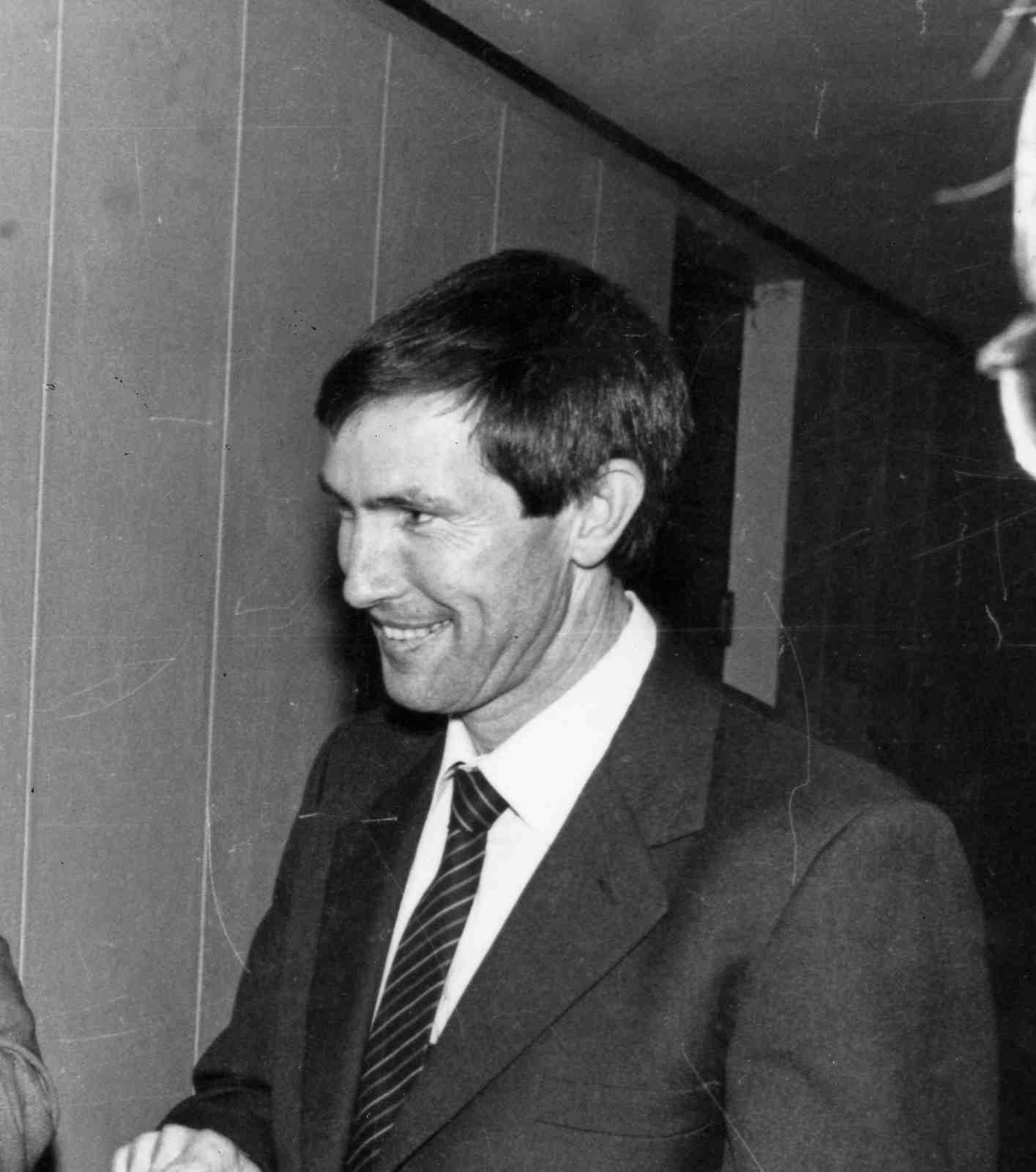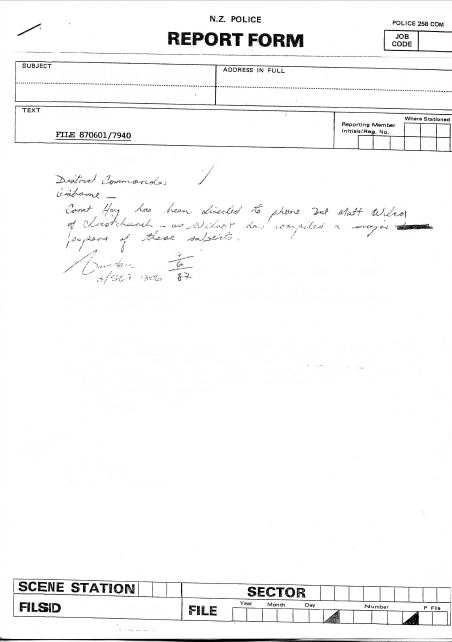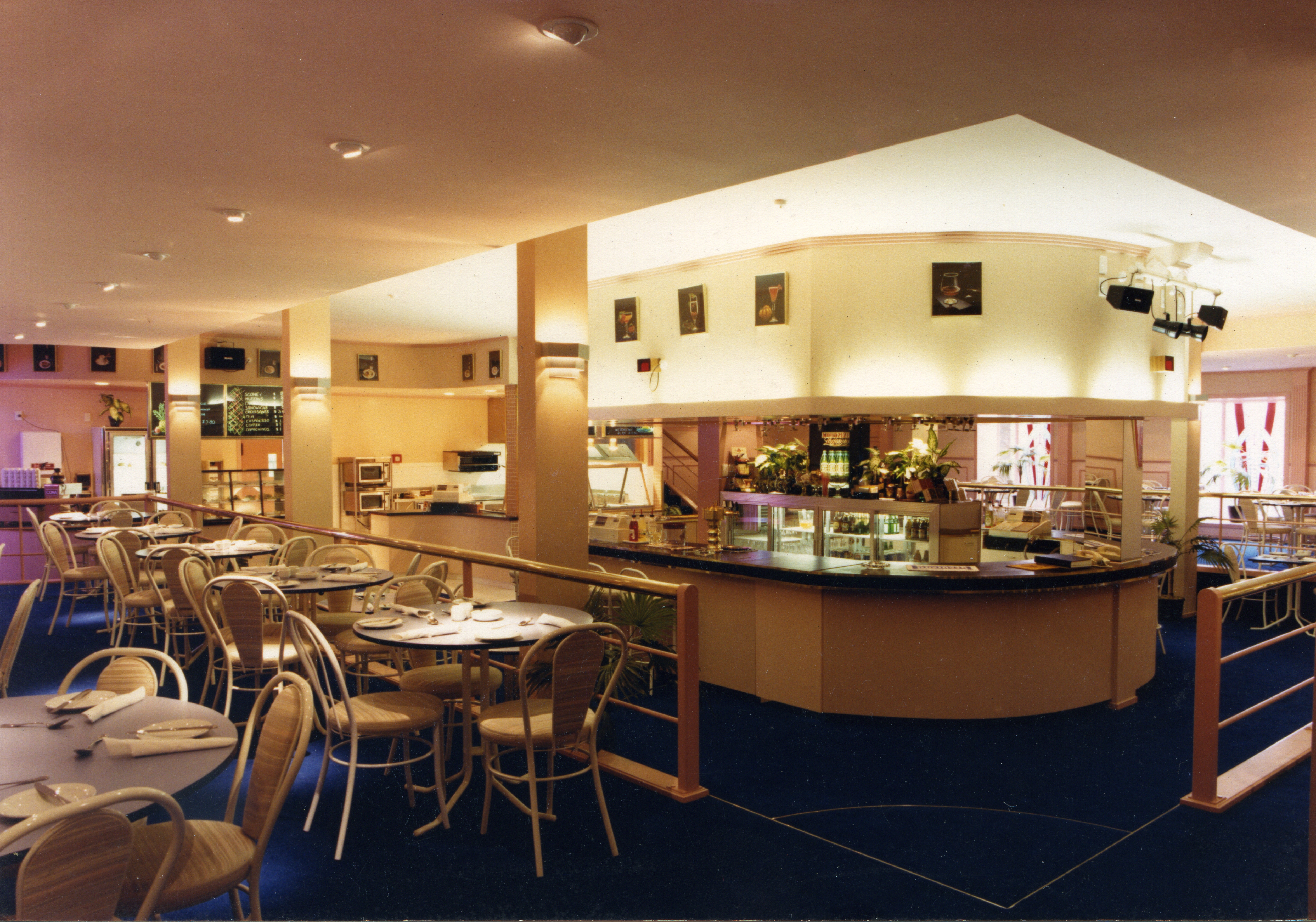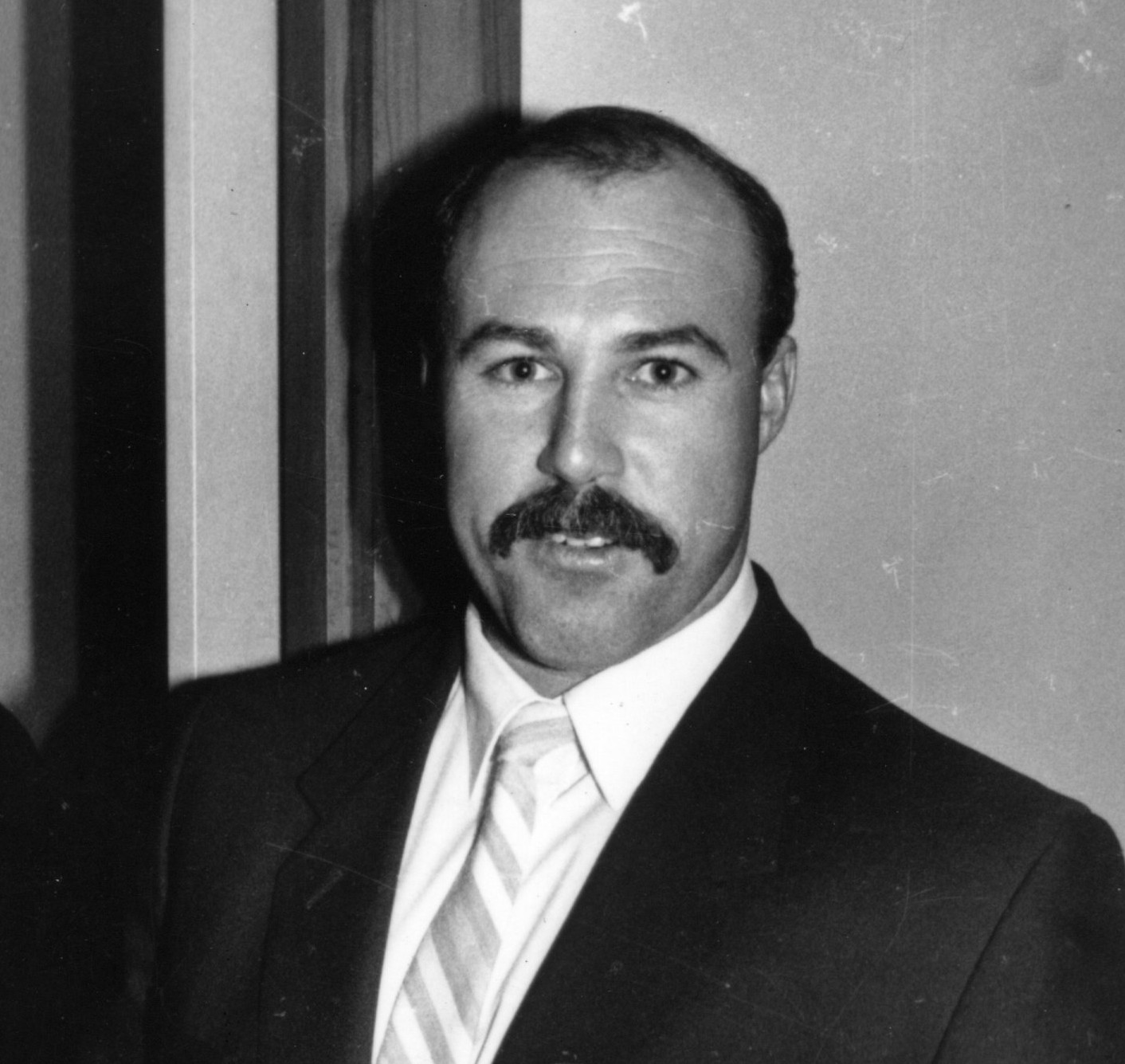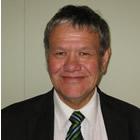As we have already said in previous posts the brothers, one in particular had suspected the involvement of Detective Willcox long before the police conspiracy came to a head. The first clue? The fact that cops had illegally attempted to obtain banking records without a warrant, this had featured in the Christchurch CIB Willcox’s M/O in the past.
The second, the failure of the National Mutual contract to refinance. Richard Parker, the Broker, had alerted the brothers to the fact that an unknown police officer had supplied the financier with “very damaging and credible information”. Whilst Parker claimed at that point not to know the name of the cop involved we now believe he knew full well who it was but had his own nefarious plan.
The principle reason for reaching this conclusion is that Parker having failed to arrange finance was no longer used by the brothers. Parker, however, hung around like a vulture, very much in the background, he knew something more than he had let on. It was later discovered that he had been covertly involved in Farrow Finance’s receivership of another of the brothers businesses, Albert Park on the 13th October 1988.
Richard Parker was to become a key player in the sale of Albert Park to Mr John Pulham. In fact Parker was key player in Pulham’s little retirement home empire, holding a number of directorships. Pulhams group was placed in receivership in 2009; Mr Richard Parker, also involved in that collapse.
Parker had also been ensnared in the later collapse of Mr Alan Hubbard and his South Canterbury Finance Company; which McManus also claimed to be expert on, but I digress, however don’t loose that thought; up coming posts will shed light on Parkers involvement with Farrow Finance’s skulduggery.
Mid July 1987, fifteen months earlier, Willcox had been in contact with the Gisborne CIB. Willcox, however, had no legitimate business requiring this contact. As the Canterbury District Commander Ron Melrose would state on the afternoon of the 2nd November 1988; “Who in Christchurch caused Christchurch CIB to be involved?” the simple answer, in June 1987,was no one had caused Willcox to be involved, Willcox had invited himself!
Willcox’s connection with the Gisborne CIB was a very personal affair. So much so that the Gisborne CIB later worked hard to keep the involvement of Willcox and his mate Byrne and any documentation likely to evidence it concealed.
Willcox’s could not afford to have his name associated with what was about to happen, there had already been a volley of complaints against Willcox resultant from his malfeasant behaviour. By June 9th Willcox had already been contacted, spoken with Constable Hay and had promised Hay information, he didn’t however supply Hay with anything preferring instead to send his personal hate file to the Gisborne CIB.
By August 1987 Willcox, having already spoken to Gisborne CIB had then instead arranged for another bent cop Detective Byrne to write officially to the honest cops . Byrne in a strange twist of fate,(or was it?) had transfered to Gisborne for a brief period completing his so called relieving duties on the 20th August 1987. The Senior Sergeant had likely been transfered to replace officers who had by now been suspended from duty because of the charges against them in the Maxwell case. (virtually the entire Gisborne CIB)
Byrne, as we have said, in association with Willcox reopens the issue of the brothers licencing application and writes a report. Chief Inspector Ratahi and Superintendent Wiseman had previously made the decision not to appose the application in June 1987 this however did not stop Byrne. In his letters and an attached report (released by police in 2009) Byrne, despite having full knowledge to the contrary, we now know attempted to falsely link the brothers to a raft of very serious crimes including an apparent attempt to fire bomb the home of Sir Clinton Roper, a high Court Judge. Amongst the other false allegations Byrne makes are arson, malicious damage, fraud and various other “mafia” style crimes.
Byrne, as with the entire Christchurch CIB greatly disliked the family because of the private information for assault that had been brought against their bent mate Willcox and previous unsuccessful attempts by Byrne himself to falsely convict the men. He too knew only to well that neither he nor Willcox’s names could ever be associated with the attack: especially Willcox’s. Had the brothers found out in 1987 all hell would have pursued.
Given the specific allegations contained in Detective Byrne’s report we in fact believe it, very likely, the document was later given to Jenni McManus in August 1988. Her articles closely mirror more than one of the false allegations Byrne had made. Allegations which McManus realistically had absolutely no other possible source for, particularly that of the brothers business dealings in Christchurch. Very personal views and interpretations that were not to be found in any media, public, government or court record. McManus would have doubtless drawn great inspiration from her acquired trove of false allegation, opinion, rumor and myth whilst penning her articles, however false they had after all been supplied by police.
Byrne’s claims in the correspondence and other documents that he has absolutely no doubt that the brothers had lied in their licencing application. Byrne claims to have inside knowledge; According to Byrne the brothers had no experience whatsoever in the hotel industry, as they had claimed in their statutory declarations. He was, apparently, also of the view that they had falsely held themselves out to be chefs (doubtless couldn’t boil an egg).
As an aside, the idiot detective wrote to the Autolodge, a hotel in Wellington, which the brother had never claimed to have been employed by. Upon receiving advice, naturally, that he hadn’t been they immediately conclude that the brother had lied and are all but ready to prosecute the brother – for the polices own outrageous incompetence.
So convinced was Byrne of this that he prematurely recommends charging both brothers with making a false declaration once his investigations have been completed – interestingly only one brother was the applicant. (in falsely purporting to investigate the other brother, who was not even a licensee applicant. Byrne to some extent displays the genuine agenda)
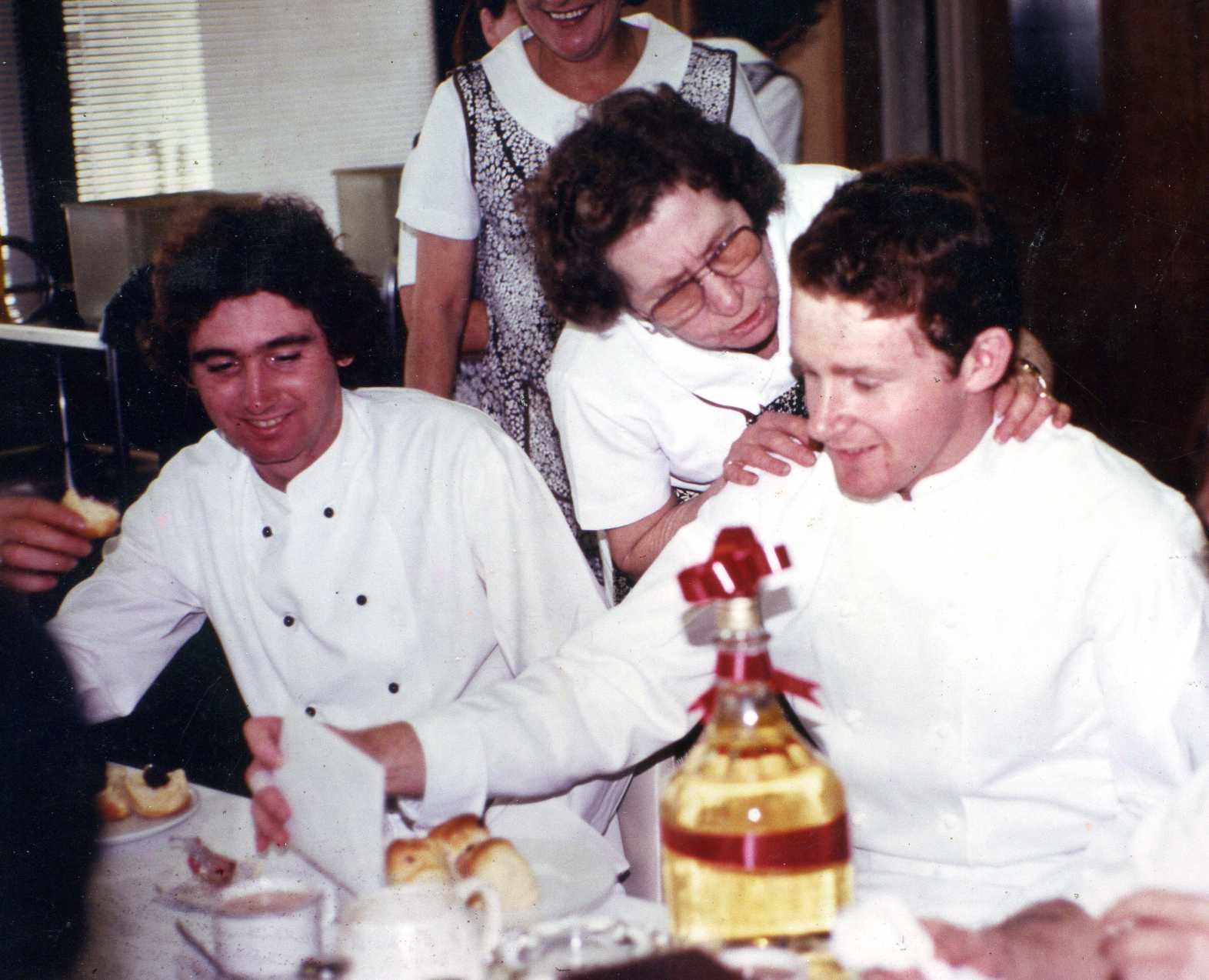
1980 at work cooking; seven years before Detective Byrne would falsely claim the brothers had no experience.
There in lay the first in a number of serious problems for Detective Byrne. He knew the brothers personally, he admits that much in one of the many letters. Byrne also held a grudge; two of the brothers had been acquitted of false allegations and charges he himself had brought against them ten years earlier.
Byrne knowing that the brothers were unlikely to see his correspondence seriously misrepresents the circumstances of the acquittal. Put simply the judge had not believed Detective Byrne’s evidence preferring the brothers instead and the arguments of their barrister – in his oral decision the Judge clearly held the view that the brothers had been subjected to prolonged police harassment – Byrne, however, gave his Gisborne colleagues a very different take on his loss in court.
Byrne knew full well that the brothers were chef’s by trade, had extensive experience, including five star hotels and restaurants. He was also doubtless aware that the eldest brother had been featured in a life style magazine; the reason? – culinary ability. The Brothers also held City and Guilds and hotel and tavern management tertiary qualifications.
The eldest brother having also taught advanced cookery and wine appreciation and service at a well known Christchurch educational institution. Byrne knew that the brothers had, at the time he wrote to Gisborne police, a combined 20 years hospitality industry experience – experience that the Mayor of Gisborne, at the time Mr. Hink Healy, had valued and recruited to spearhead a local body tourism initiative .
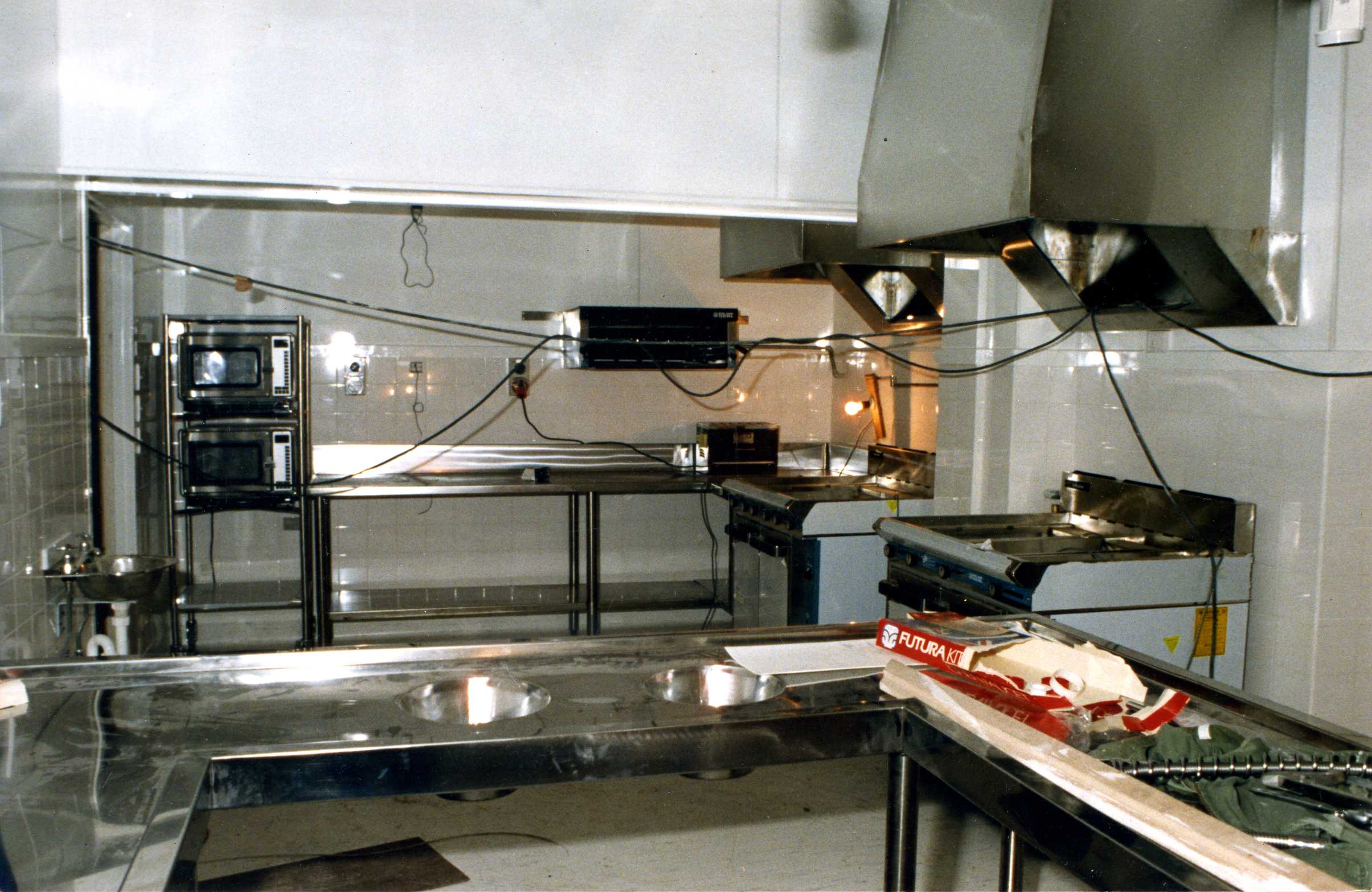
1987; just one of the many commercial kitchens (under construction) designed and built by the brothers Detective Byrne had falsely alleged lied about their industry experience
Given this knowledge why was Byrne claiming that he was conducting investigations into the veracity of the brothers declarations. Why did Byrne, knowing the brothers claims to be absolutely true, recommend charging the men with having made false declarations and last but by no means least why was Byrne’s producing documents specifically designed to mislead fellow police officers and in particular the District Commander in Gisborne?
Well the answer is very simple really Detective Byrne and Detective Matt Willcox, wanted to seriously damage the mens reputations so as to destroy their business; and the easiest way to achieve that was to stop a liquor licence being issued, with over a million dollars invested a failure to get the license would have been catastrophic, Willcox and the Gisborne CIB knew that, they also knew that at that point Gisborne creditors would have lost far more than they were destined to – the delay was bad enough causing a loss of approximately $300’000.00, money that would have paid those same creditors as intended.
Interestingly Byrne’s report concealed by police until 2009 has one paragraph redacted. Given, however, the context of the preceding and following paragraphs we suspect that Byrne makes reference to Detective Stanley Matthew Willcox.
Constable Hay in a report dated in June 1987 had a very different and far more accurate assessment of the brothers abilities:
I have recently viewed the renovations taking place in the old Cosmoplitan Club and there is no doubt that what is taking place will, if patronised, be an asset to this city.”
In the last paragraph of one of Detective Bryne’s letters he claims that he had not completed his inquiries into the eldest brothers claimed experience. The truth however was Byrne’s didn’t bother investigating the eldest brothers resume, there is absolutely no evidence on file of any completed investigation; after all why would he? Byrne didn’t have to investigate anything he already knew the brothers skill set – and he knew that they were not the Mafia that he had attempted to paint them as. More importantly Byrne also knew that he had seriously lied and had knowingly misrepresented events in an official police report.
Byrne’s had attempted to defame the brothers in the full knowledge that the allegations he had committed to paper were a complete and utter fabrication. Wiseman and Ratahi, senior, professional and honest cops saw through his efforts and quickly formed the view that there was something seriously wrong with the information and views that the CIB were promulgating.
Another compelling reason why the Gisborne CIB officers involved in the corruption were forced to cease their efforts is that they had all been suspended. The suspensions resulted from previous and far more serious malfeasant behavior.
By the end of August 1987 Detective Thomas and his bent mates had all been charged with serious criminal offences. It was alleged that they had kidnapped a suspect in the Ruatoria fires, Dickie Maxwell, stripped him naked, bound his hands with barbed wire and apparently shot gun in hand attempted to extract a confession.
They were later acquitted by a local Gisborne jury; many, however, believe that Maxwell’s allegations were true, Commander Ratahi was certainly of that opinion. Whiro Ratahi after the trial had to be relocated to Wellington; following death threats he had received. Ratahi believed the threats were from the officers he had charged. Ratahi unfortunately continued to receive these menacing telephone calls, after the transfer, at his home in Wellington. Police apparently tried in vein to trace those responsible without result.
At the conclusion of yet another unrelated later trial wherein, Detective Sergeant Barry Woon, Constables Greg Lexmond, Regan Horsfall and Tommy Adamson, and former Detective Sergeant Dave Neilson, again Gisborne police officers, had been charged with corruption; incidentally, Detective Dave Nielson had also been a defendant in the Maxwell trial, the local commander Rana Waitai was quoted as saying:
Rana Waitai knew that senior police officers would now be reluctant to investigate corruption within police ranks. Waitai just like Ratahi before him also knew that Gisborne juries were unique in that they were not at all interested in convicting their own “local” bent cops, these good old boy’s were far to useful. Ratahi said as much! (click to hear tape)
Willcox too had been charged with an assault, four years earlier, and endured a similar trial. Thomas knew that, Byrne had doubtless made the family the subject of tall tales and rumour whilst stationed in Gisborne. Willcox, unlike Thomas, however, had been found guilty of the assault and given a section 42 discharge. Events in the Maxwell Trial was to bring about a strange bond between two psychopaths, Detectives Matt Willcox and Malcolm Thomas. These personal events undoubtedly resulted in Thomas’s empathetic relationship with Willcox; the result, Thomas’s pathological hatred of the brothers and his willing participation in Willcox’s plans. Both cops had been called on their behaviour and didn’t like it one bit. Rather than seeing the charges as a warning both continued, arguably increasing, their corrupt and malfeasant behavior.
Jenni McManus, however, was not so smart. McManus, despite the brothers warning, genuinely believed everything she had been told by Detective Malcolm Thomas, the ring leader of the group.
So convinced in fact that she advises her caller Jonathan Egglestone: “this policeman Malcolm Thomas, he should be helpful” (click to hear tape).
McManus had been wholly convinced, not just by the conversations she had with Thomas. No, there had to have been more! The contents, the order of accusation in her articles,however, provide a clue.
Further to the telephone calls, Jenni McManus had, undoubtedly, received information; the authenticity of which she had total confidence in; “official” police documents. Documents detective Thomas had sent her. The very same documents that he and others in the Gisborne CIB had attempted to use twelve months earlier.
The very same documents that the police concealed and failed to produce following many Freedom of Information requests in 1988 and 1989.
The very same false information born of the malicious and vindictive machinations of Detectives Stanley Matthew Willcox and Byrne in Christchurch! Once you factor in these events it becomes very clear however why commissioner John Jamieson hid the involvement of these two men. John Jamieson had an intimate knowledge of Willcox’s and Byrne’s previous malicious involvement with the family, he had been the Canterbury District Commander when Willcox was charged. Now as Commissioner of police he knew that he had to ensure the conspiracy was buried.
